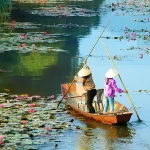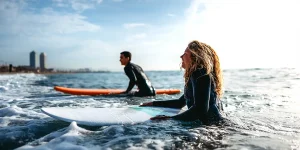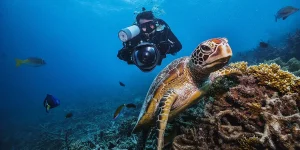Looking for a way to travel that doesn’t cost the Earth? This summer, swap crowded resorts for meaningful eco-tourism adventures that connect you with nature, culture, and community.
Whether it’s kayaking through Sweden’s island maze or volunteering at a sea turtle sanctuary in Greece, these sustainable travel experiences are designed to inspire — and to protect the places you love to explore.
From carbon-neutral resorts to low-impact hiking trails, each destination offers a unique way to enjoy the planet without harming it. So if you’re building your next green travel itinerary, these 12 eco-friendly ideas will help you pack lighter, tread softer, and return home with something deeper than a tan.
Table of Contents
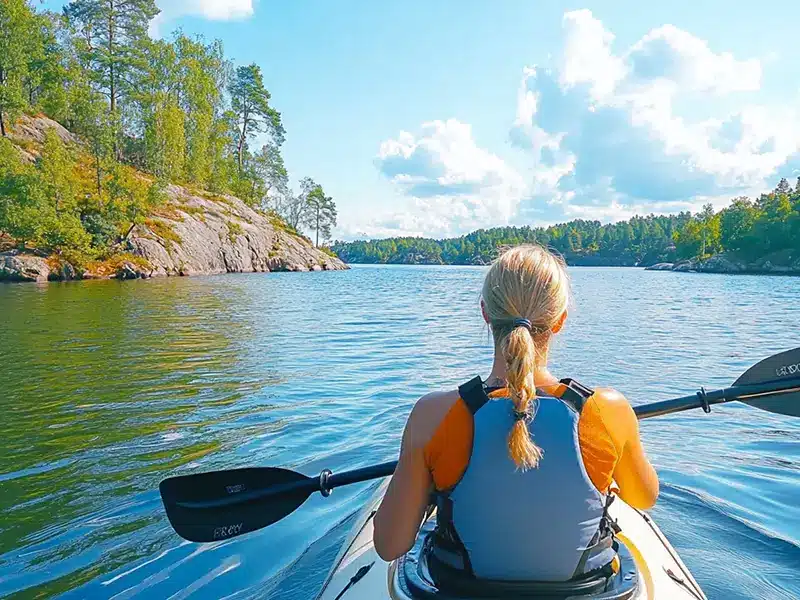
Kayaking in Sweden’s Stockholm Archipelago
Where: Stockholm Archipelago, Sweden
Type of Experience: Eco-friendly kayaking, marine exploration, outdoor adventure
Imagine paddling through a peaceful maze of 30,000 islands, each more untouched than the last. Sweden’s Stockholm Archipelago offers one of Europe’s best eco-friendly outdoor activities, where silence is only broken by birdsong or your paddle cutting through the water. Local outfitters provide carbon-neutral tours using recycled kayaks and solar-powered gear transports, making this a top pick for green adventure destinations.
Bring your own reusable containers for picnic lunches, and steer clear of plastic wraps and single-use bottles. Many guided trips include stops at small, family-run cabins or tent camping on forested islets — both perfect for low-impact overnights.
Eco Tip: Choose a certified eco-operator and bring along a portable water filter to avoid buying bottled water.
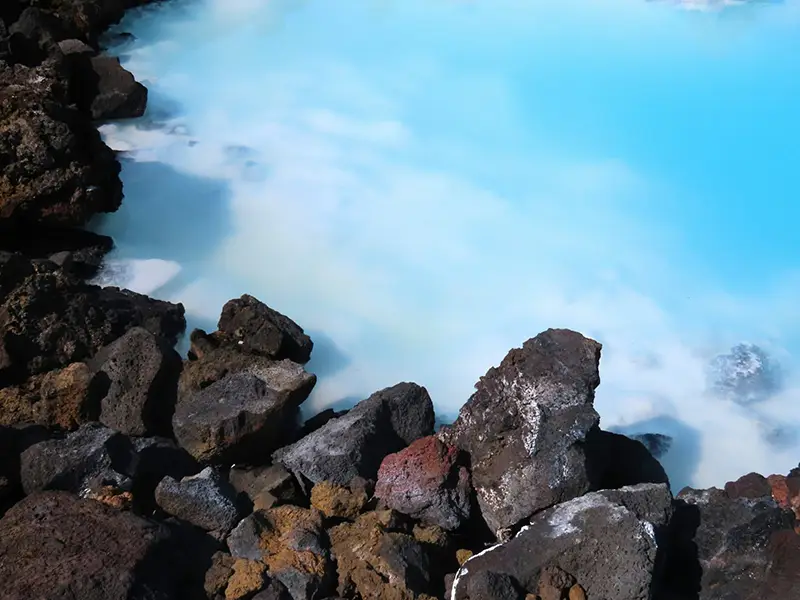
Volunteering at Iceland’s Blue Lagoon Eco-Retreat
Where: Near Grindavík, Iceland
Type of Experience: Sustainable wellness, geothermal conservation, spa volunteering
Iceland’s Blue Lagoon is famous for its vivid blue waters and mineral-rich mud masks, but just beyond the spa crowds lies a deeper opportunity. Several carbon-neutral resorts in the area offer eco-retreats and volunteer programs that focus on preserving Iceland’s geothermal wonders. From trail maintenance to thermal runoff management, you’ll get hands-on with sustainability while soaking up otherworldly views.
Pair your stay with a low-impact visit to Thingvellir National Park or take a guided e-bike tour of the Reykjanes Peninsula. With the country’s strong commitment to renewable energy, this is one of the best spots to explore renewable energy tourism firsthand.
Eco Tip: When bathing in hot springs or geothermal spas, rinse thoroughly without soap before entering to protect the natural water quality, a requirement often overlooked by travelers.

Eco-Lodge Stays in Belize’s Barrier Reef Region
Where: Belize Barrier Reef, Central America
Type of Experience: Eco-lodge vacation, marine wildlife, snorkeling and conservation
Belize is home to the second-largest coral reef system in the world — and thankfully, it’s also home to a growing number of eco-lodge vacations that support its preservation. From overwater cabins powered by solar panels to jungle bungalows that compost on-site, the accommodations here make it easy to stay in style while minimizing your footprint.
You can snorkel with certified green operators who follow “look but don’t touch” reef protocols, or join a mangrove restoration project for a more immersive eco-conscious volunteering experience. Either way, this destination blends natural beauty with purpose.
Eco Tip: Use reef-safe sunscreen (no oxybenzone or octinoxate) and skip motorized boat tours in favor of paddling or sailing.
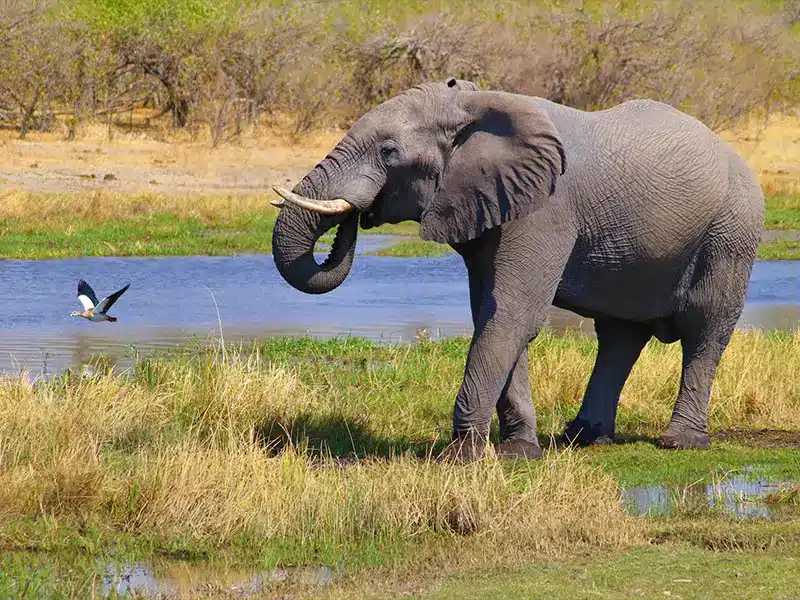
Wildlife Safaris in Botswana’s Okavango Delta
Where: Okavango Delta, Botswana
Type of Experience: Sustainable safari, wildlife observation, community-based tourism
In Botswana’s Okavango Delta, wildlife experiences go hand-in-hand with conservation. This UNESCO-listed wetland is home to elephants, lions, hippos, and hundreds of bird species — and it’s also one of Africa’s leading models for sustainable wildlife conservation. Many safari camps here operate entirely off-grid, using solar panels, composting systems, and greywater recycling.
Instead of vehicle-heavy game drives, opt for a mokoro tour — a traditional dugout canoe steered silently through reed channels. It’s a low-impact way to encounter wildlife without disturbing delicate ecosystems. Many lodges are also owned or staffed by local communities, meaning your visit supports long-term stewardship of the land.
Eco Tip: Choose safari camps that are part of Botswana’s Community-Based Natural Resource Management (CBNRM) programs. This ensures your money supports local livelihoods and conservation efforts.
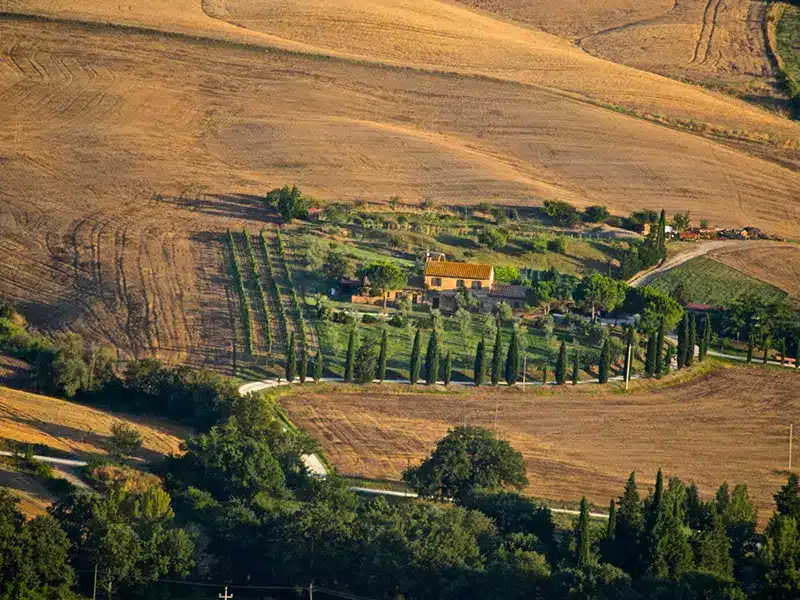
Organic Farm Stays in Tuscany, Italy
Where: Tuscany, Italy
Type of Experience: Agritourism, eco-gastronomy, slow travel
If your idea of adventure includes handmade pasta, olive groves, and terracotta sunsets, a stay at a Tuscan agriturismo might be your perfect summer escape. These countryside farms offer cozy lodging, homegrown meals, and immersive activities — from olive picking to organic wine tastings — all rooted in principles of sustainable travel experiences.
Staying on a working organic farm means every bite has a story, and every day brings a new rhythm — whether it’s feeding chickens or learning to bake sourdough from scratch. Many hosts also offer workshops in permaculture or zero-waste cooking, making this a meaningful option for green vacation spots that nourish both body and planet.
Eco Tip: Support smaller, family-run agriturismo farms that grow food without chemical pesticides and use traditional, low-impact methods. Travel between villages by local train instead of renting a car — Tuscany’s rural rail network makes slow travel both scenic and sustainable.
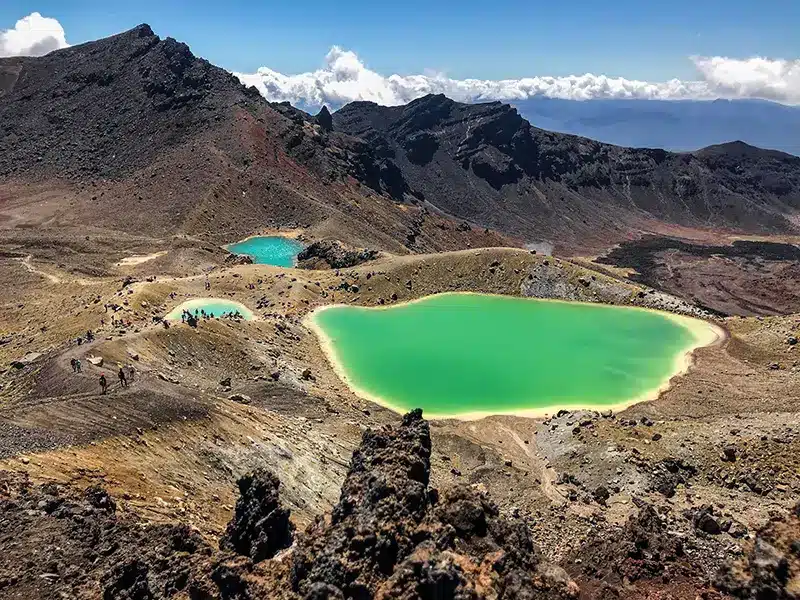
Hiking New Zealand’s Tongariro National Park
Where: North Island, New Zealand
Type of Experience: Volcanic hiking, cultural respect, national park travel
One of the most dramatic sustainable national parks in the world, Tongariro offers jagged lava fields, crater lakes, and alpine meadows linked by well-managed trails. This UNESCO dual heritage site is sacred to the Maori people and home to the popular Tongariro Alpine Crossing — a 12-mile (19.4 km) hike considered one of the best day treks on Earth.
The park’s carbon-neutral visitor centers, bio-waste toilets, and strict conservation policies help keep its ecosystem thriving. Guided eco-tours are available for those who want to learn more about local geology and cultural narratives while minimizing their environmental footprint.
Eco Tip: Book your hike outside peak season (November to March) if possible — this eases strain on the fragile volcanic trails and reduces crowd-related erosion.

Sea Turtle Conservation in Greece’s Zakynthos
Where: Zakynthos Island, Greece
Type of Experience: Wildlife volunteering, marine protection, coastal eco-tourism
Zakynthos is more than just a postcard-perfect Greek island — it’s also a nesting ground for endangered loggerhead sea turtles. Every summer, volunteers from around the world join eco-camps to monitor beaches, protect nests, and educate visitors on how to reduce harm to these incredible creatures. It’s one of Europe’s most rewarding eco-conscious volunteering experiences.
Mornings may involve turtle tracking or beach cleanups, while afternoons are free for low-impact coastal hikes or swims in protected marine zones. Dining is easy and sustainable here too — fresh seafood, local produce, and minimal packaging are part of island life.
Eco Tip: Avoid plastic straws and bags — even small litter poses a serious threat to hatchlings. Many cafés now offer bamboo or stainless-steel alternatives.
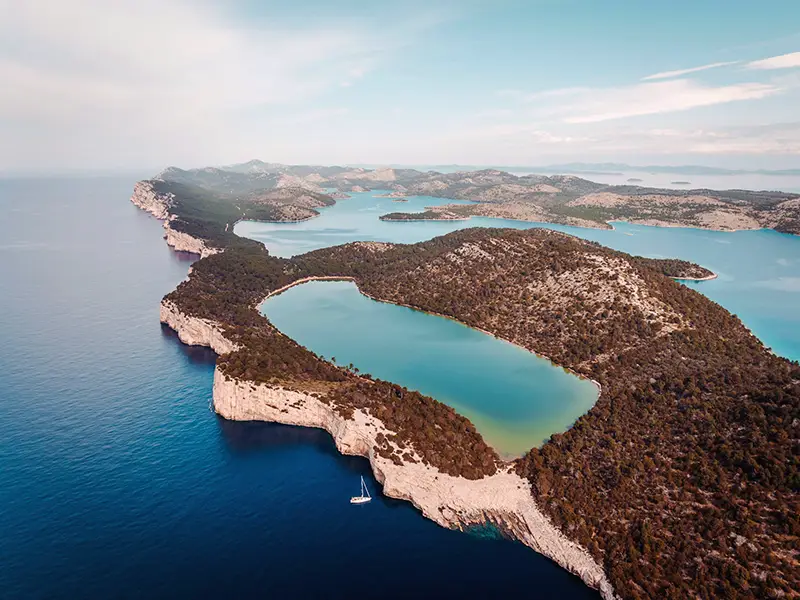
Sailing in Croatia’s Kornati National Park
Where: Kornati Archipelago, Croatia
Type of Experience: Marine conservation, eco-sailing, low-impact exploration
Croatia’s Kornati National Park is a sailor’s dream — a protected marine reserve made up of 89 limestone islands, each one wild and uninhabited. Instead of speedboats or party cruises, go with an eco-tourism adventure operator using electric or wind-powered boats. These quiet vessels help preserve the park’s pristine underwater ecosystems and minimize anchor damage to fragile seabeds.
You’ll glide past cliffs, snorkel in clear blue coves, and dock at remote harbors where seafood is caught hours (not days) before it’s served. It’s the ideal destination for those who want to experience nature without leaving a trace.
Eco Tip: Refill water bottles at marinas, bring biodegradable soap, and separate your waste — even on a boat, recycling matters.
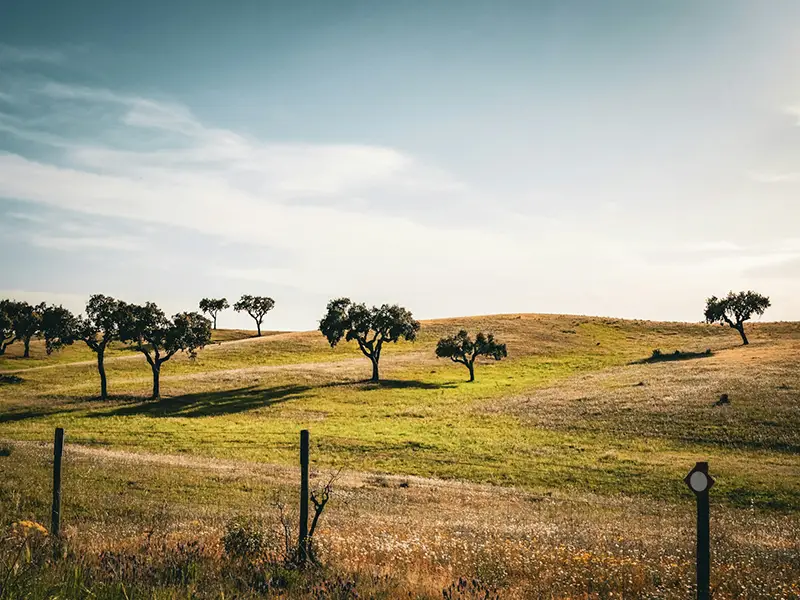
Eco-Village Immersion in Portugal’s Tamera Community
Where: Alentejo Region, Portugal
Type of Experience: Regenerative living, permaculture learning, off-grid travel
If you’re looking for a deeper kind of travel, Tamera might be your next transformative stop. This intentional community in southern Portugal is internationally known for its research in sustainable living, renewable energy, and social harmony. Visitors are welcomed into workshops on topics like permaculture, water retention landscaping, and zero-waste systems — all while living alongside full-time residents.
Daily rhythms here include shared vegetarian meals, hands-on gardening, and discussions on global peacebuilding. Tamera is more than a place — it’s a living example of how humans can live in balance with the Earth.
Eco Tip: Travel light — minimizing your luggage weight reduces emissions and helps you align with the community’s zero-waste goals.
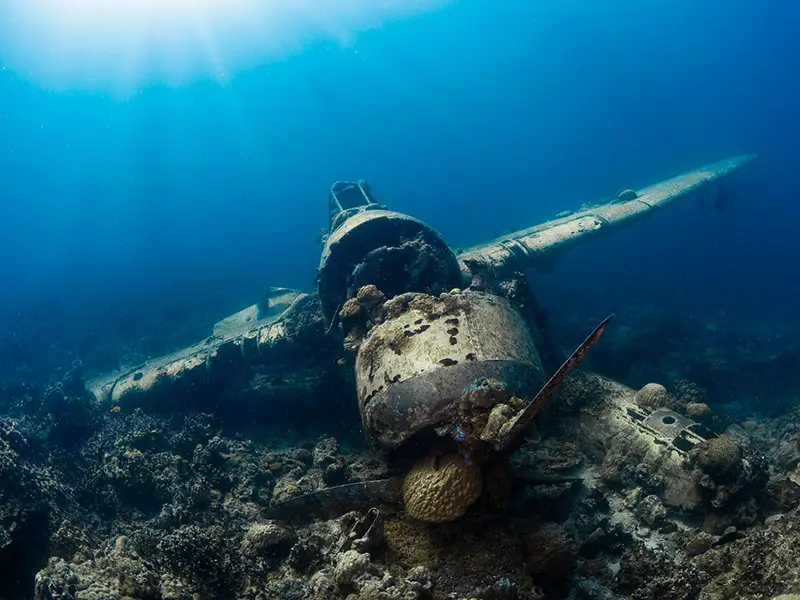
Eco-Friendly Diving in Palau’s Rock Islands
Where: Rock Islands, Palau (Western Pacific)
Type of Experience: Marine sanctuary diving, reef protection, ocean eco-tourism
Palau is a trailblazer in sustainable travel experiences, having established one of the world’s first national pledges to responsible tourism. The Rock Islands Southern Lagoon, a UNESCO World Heritage site, offers world-class diving among coral reefs, manta rays, and vibrant marine life — all under strict environmental protection policies.
Dive operators here are required to be green-certified, using eco-friendly mooring practices and enforcing “look, don’t touch” principles. Beyond diving, travelers can participate in coral restoration projects or join educational snorkeling tours that highlight reef biology and climate impact.
Eco Tip: Sign the Palau Pledge upon arrival and follow its principles — this includes using only approved reef-safe sunscreens, not collecting shells or coral, and never feeding marine wildlife. Opt for dive operators that participate in coral monitoring or marine data collection programs.
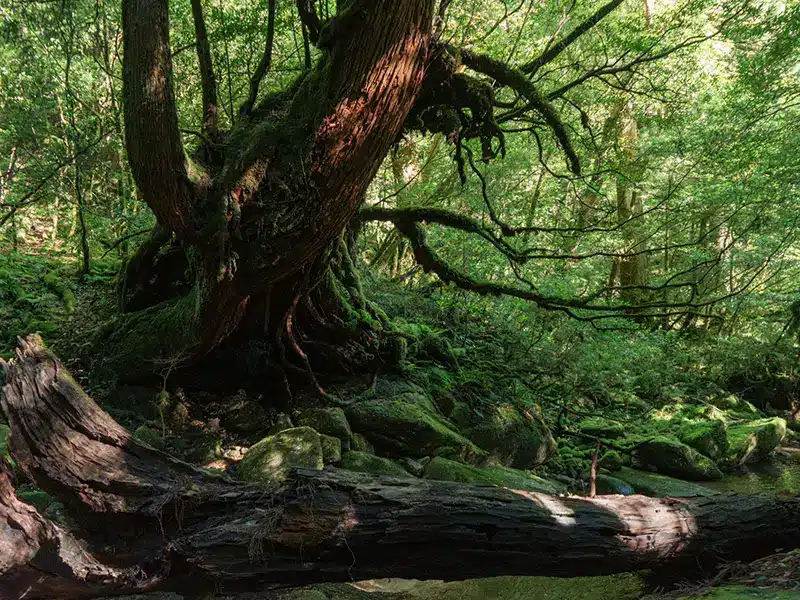
Forest Bathing in Japan’s Yakushima Island
Where: Yakushima Island, Japan
Type of Experience: Nature therapy, hiking, cultural eco-tourism
Step into the ancient forests of Yakushima, where moss-covered trails, towering cedar trees, and quiet waterfalls create the perfect setting for shinrin-yoku — or “forest bathing.” This Japanese practice of mindful nature immersion is more than just a walk in the woods; it’s a meditative way to connect with your surroundings and lower stress, backed by years of scientific research.
Yakushima’s eco-retreats and hiking paths are managed with conservation in mind, and the island’s designation as a sustainable national park ensures visitor impact is tightly controlled. The quiet, respectful atmosphere makes it ideal for travelers seeking inner and outer calm.
Eco Tip: Support locally owned guesthouses and guides, and bring your own reusable bento box for trail lunches.

Renewable Energy Tours in Denmark’s Samsø Island
Where: Samsø Island, Denmark
Type of Experience: Green energy tourism, cycling, low-impact island travel
Samsø isn’t just carbon-neutral — it’s a working example of what happens when a whole community commits to clean energy. Wind turbines, solar panels, and biomass heating systems power this small Danish island, and visitors are welcome to explore it all on foot or by bike. Guided renewable energy tourism tours explain how residents made the switch and how similar models can be applied elsewhere.
Along the way, travelers can stay in energy-efficient cottages, shop at package-free stores, and dine on organic local fare. It’s educational, relaxing, and a brilliant model for future-focused travel.
Eco Tip: Rent a bike instead of a car, and ask about green-certified accommodations — many have heat pumps, solar panels, or rainwater harvesting systems.
Planning Your Eco-Friendly Summer Adventure
These sustainable travel experiences prove that adventure and responsibility can go hand in hand. Whether you’re volunteering with sea turtles in Greece, hiking through a carbon-neutral national park in New Zealand, or sailing through Croatia’s protected waters, these eco-tourism adventures invite you to explore the planet more thoughtfully.
As more travelers embrace green vacation spots, every choice — from reef-safe sunscreen to staying at eco-lodge vacations — becomes part of a larger shift toward sustainability. So when planning your next journey, think beyond the itinerary. Choose eco-friendly outdoor activities, support local communities, and pack with the planet in mind.
Because summer is short, the Earth is fragile, and the world is full of places worth seeing — and protecting.

